Get free quotes within minutes
Bathroom Renovation Contractors Sydney: How to Choose the Best Service for Your Home
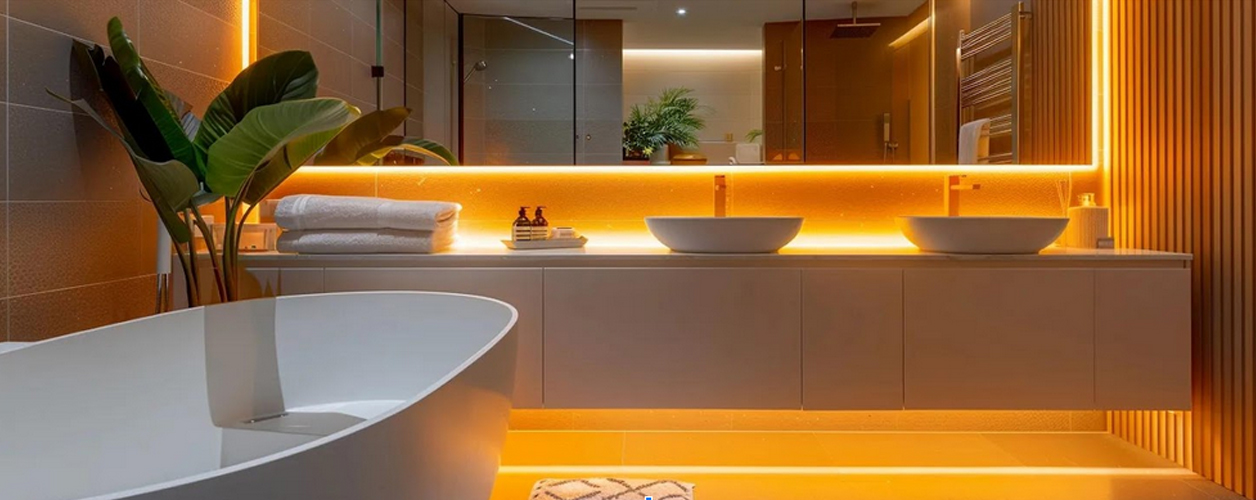
Table Of Content
- Introduction
- What Services Do Bathroom Renovation Contractors in Sydney Offer?
- How Much Does a Bathroom Renovation Cost in Sydney?
- How Long Does a Bathroom Renovation Take in Sydney?
- What Are the Best Materials and Fixtures for Bathroom Renovations in Sydney?
- What Local Regulations and Permits Are Required for Bathroom Renovations in Sydney?
- How to Choose the Right Bathroom Renovation Contractor in Sydney?
- What Are the Latest Trends in Bathroom Renovations in Sydney?
- Table: Summary of Key Factors in Bathroom Renovation Costs and Timelines
- How to Choose the Right Bathroom Renovation Contractor in Sydney?
- What Are the Latest Trends in Bathroom Renovations in Sydney?
- Final Thoughts
- FAQs
Bathroom renovation transforms your space into a modern, functional retreat while boosting property value. In Sydney—where property values are high and design trends rapidly change—selecting the right contractor is crucial to meet your budget, timeline, and style expectations. Homeowners face challenges such as waterproofing, tile selection, fixture updates, and compliance with local regulations. To get precise advice, you might contact a bathroom renovation contractor in Sydney when planning these updates. This guide explains the services offered by contractors, factors affecting cost and duration, material and design considerations, and how to choose a contractor—remember to contact the expert for further details—to ensure a successful renovation.
What Services Do Bathroom Renovation Contractors in Sydney Offer?
Renovation contractors in Sydney manage every aspect of upgrading your bathroom. They lead both design and construction phases, coordinating with suppliers, subcontractors, and regulatory bodies so that all work meets local codes and quality standards.
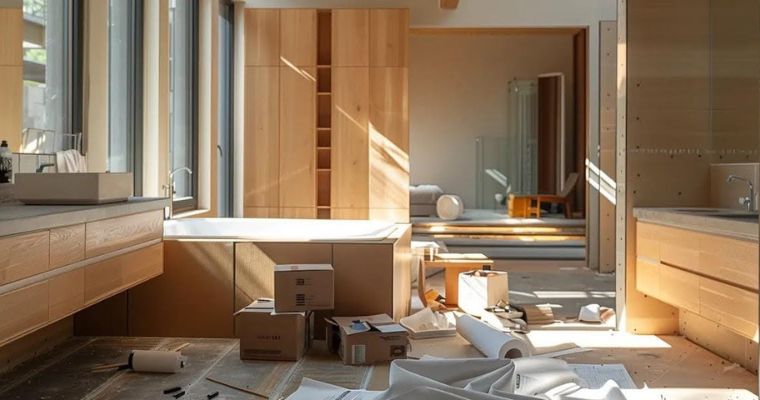
Which Bathroom Renovation Services Are Included?
Common services include: - Demolition and removal of old fixtures, tiles, and cabinetry. - Installation of new plumbing systems, waterproofing membranes, and compliant electrical work. - Fitting new flooring, wall tiles, vanities, showers, bathtubs, toilets, and sinks. - Upgrading lighting and ventilation systems. - Offering design consultancy to align renovation choices with current trends and your vision.
By providing end-to-end services, contractors help optimise layout, reduce moisture issues, and ensure safety through proper waterproofing and ergonomic design.
How Does Project Management Ensure a Smooth Renovation?
Effective project management is key. Skilled managers create timelines, allocate budgets, and coordinate tasks to minimise disruptions. They use scheduling tools, such as Gantt charts and progress meetings, to identify delays early and adjust plans accordingly. Regular communication and transparent reporting keep homeowners informed of milestones so that issues—like unexpected fixture challenges—are resolved promptly. In Sydney, where design innovation and regulatory compliance are essential, strong project management guarantees a high-quality finish.
What Makes Custom Bathroom Design Important in Sydney Renovations?
Custom design is essential for both functionality and personal style. With a competitive property market, Sydney homeowners expect standout craftsmanship. Custom designs offer personalised layouts, bespoke cabinetry, and tailored fixtures that improve space efficiency and aesthetics. Features such as floating vanities, ambient lighting, modern tiles, energy-efficient LED lighting, and water-saving fixtures ensure that your bathroom is attractive, sustainable, and built to last.
How Much Does a Bathroom Renovation Cost in Sydney?
Bathroom renovation costs in Sydney depend on project scale, materials, and labour. Prices range from modest updates to luxury overhauls.
What Factors Influence Bathroom Renovation Pricing?
Key factors include: - Bathroom size and redesign complexity. - Quality of materials (standard vs. premium tiles, fixtures, etc.). - Required structural modifications. - Higher local labour costs. - Unexpected issues like moisture damage or outdated plumbing may add expenses.
Contractors provide detailed quotes covering demolition, materials, installation, and project management. Knowing these factors helps homeowners compare quotes and negotiate effectively.
How to Plan Your Bathroom Renovation Budget Effectively?
Start with realistic expectations and secure multiple quotes from reputable contractors. Include a contingency fund (around 10–20% of the budget) to cover unforeseen costs. Differentiate between estimated costs and potential additional fees (permits, specialised labour, design consultancy). A well-planned budget serves as a financial roadmap and quality control tool throughout the project.
How Long Does a Bathroom Renovation Take in Sydney?
Renovation duration depends on project scope, customisation, and contractor scheduling. A simple renovation may take four to six weeks, while extensive projects can extend to eight weeks or more.
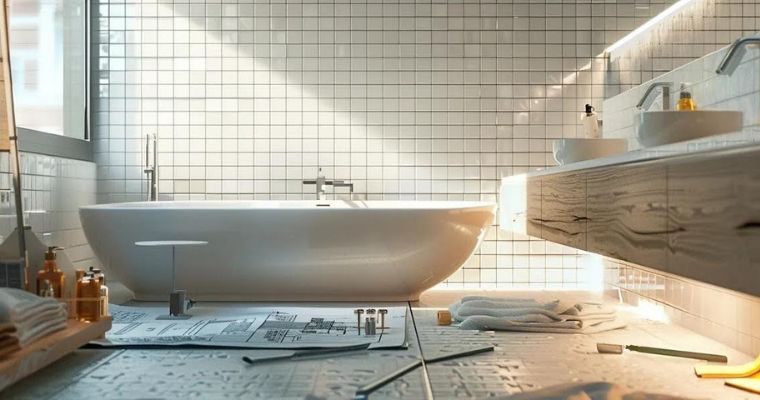
What Is the Step-by-Step Bathroom Renovation Process?
The process typically follows these steps: 1. Consultation and Design: Homeowners meet with the contractor to discuss goals and layout ideas. 2. Permitting and Sourcing: Obtain necessary permits and secure materials. 3. Demolition: Remove outdated fixtures and prepare the space. 4. Infrastructure Work: Conduct electrical, plumbing, and waterproofing tasks simultaneously. 5. Installation: Lay tiles, install fixtures, and upgrade lighting. 6. Final Touches: Complete detailing and ensure all systems function properly.
Delays—like drying times for waterproofing or grout—are minimised with detailed scheduling and coordination of trades.
How Do Different Renovation Types Affect Project Duration?
Simpler updates require less demolition and have fewer complications compared to full overhauls that involve layout changes, new plumbing, and custom cabinetry. Luxury renovations are more time-intensive due to the need for special orders and precise installation. Factors such as subcontractor reliability and weather can also impact timelines.
How Can Project Management Reduce Renovation Delays?
Effective project management anticipates setbacks by using modern scheduling tools and maintaining regular communication. By adhering to strict timelines and monitoring progress closely, project managers ensure quick responses to unexpected issues, keeping the renovation on track with minimal disruption.
What Are the Best Materials and Fixtures for Bathroom Renovations in Sydney?
Choosing quality materials and fixtures is key to balancing durability, aesthetics, and functionality. Homeowners in Sydney favour water-resistant, low-maintenance materials with a modern look that also offer environmental benefits.
How to Choose Bathroom Tiles That Suit Your Style and Budget?
When selecting tiles, consider durability, water resistance, and maintenance. Porcelain and ceramic tiles are popular due to their resilience and variety. Natural stone tiles (like marble or travertine) offer luxury but may require more upkeep. Evaluate tile ratings and grout quality to ensure long-term performance that fits your design vision and budget.
Which Bathroom Fixtures Are Popular in Sydney Renovations?
Modern fixtures that combine functionality and style are in demand. Popular choices include: - Integrated lighting vanities. - Sleek freestanding bathtubs. - Dual-flush toilets. - Touchless faucets and smart showers. - Frameless glass shower enclosures. - Minimalist basins. Selecting reputable brands with warranties helps reduce maintenance and enhances overall efficiency.
What Sustainable and Eco-Friendly Materials Are Available?
Eco-friendly options are increasingly popular. Consider: - Recycled glass tiles. - Bamboo vanities and sustainably sourced stone countertops. - Dual-flush toilets and low-flow showerheads. - Reclaimed wood cabinetry and eco-friendly composite materials. These choices reduce environmental impact, improve durability, and may lower long-term costs while aligning with modern sustainability standards.
What Local Regulations and Permits Are Required for Bathroom Renovations in Sydney?
Adhering to local regulations and securing permits is essential for safety, insurance, and legal compliance. These requirements cover structural integrity, plumbing, electrical safety, and energy efficiency. Failure to obtain proper permits can lead to fines and project delays.
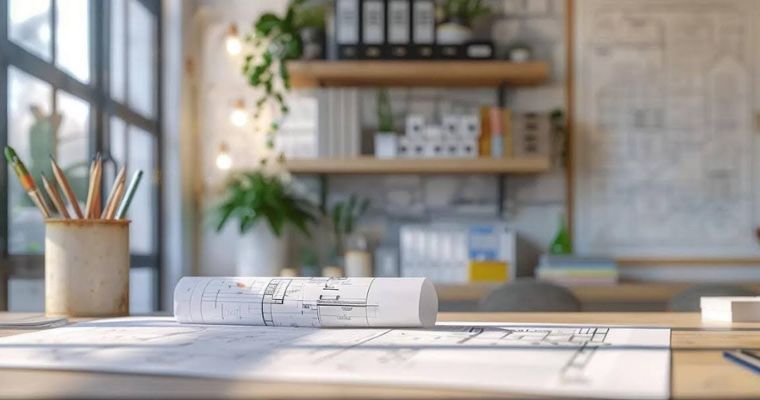
Which Building Codes Must Contractors Follow in Sydney?
Contractors must follow building codes established by local councils and state authorities. Key guidelines include those for waterproofing, electrical safety, plumbing, and fire safety. Compliance ensures the renovation is safe, durable, and legally sound.
How to Obtain Bathroom Renovation Permits in Sydney?
Typically, the contractor or project manager submits detailed renovation plans to the local council for review. Once the plans—addressing ventilation, waterproofing, and electrical safety—are approved, the permit is issued, allowing construction to begin. Homeowners should verify that their contractor holds the necessary permits before starting work.
Why Is Compliance Important for Your Renovation Project?
Following regulations and obtaining permits ensures that the renovation meets safety standards and protects against legal and financial issues. Compliance guarantees quality workmanship and helps maintain the home’s marketability while safeguarding the health and safety of occupants.
How to Choose the Right Bathroom Renovation Contractor in Sydney?
Choosing the right contractor is critical for a smooth, cost-effective renovation. It involves reviewing credentials, past work, customer feedback, and quotes to ensure the contractor aligns with your project goals and budget.
What Questions Should You Ask Potential Contractors?
Ask questions such as: - “What is your experience with bathroom renovations similar to mine?” - “Can you provide references or testimonials from previous clients?” - “How do you manage scheduling and unexpected delays?” - “What is included in your detailed renovation quote?” - “How do you handle permits and building code compliance?” These questions reveal the contractor’s expertise, transparency, and reliability, and help you compare potential service providers.
How Does Sydney Bathrooms & Design Stand Out Among Competitors?
Some contractors, like Sydney Bathrooms & Design, offer a complete package with custom design integration, high-quality materials, and thorough project management. Their extensive portfolios and clear communication set them apart. They focus on blending modern trends with timeless design while meeting regulatory standards.
Where Can You See Examples of Completed Bathroom Renovations?
Review portfolios on contractor websites, social media, or visit showrooms. Virtual tours and before-and-after galleries provide clear evidence of quality work and design versatility, offering peace of mind and insight into the contractor’s capability to execute your vision.
What Are the Latest Trends in Bathroom Renovations in Sydney?
Current trends in Sydney combine cutting-edge design, smart technology, and sustainability. Homeowners want bathrooms that maximise space and natural light while offering a luxurious, modern feel.
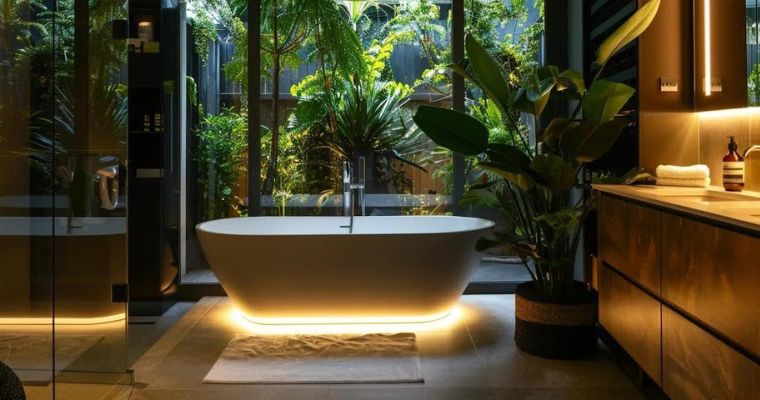
How Are Smart Bathrooms Changing Renovation Designs?
Smart bathrooms integrate technology to enhance convenience and energy efficiency. Innovations include: - Smart showers with preset temperature and water pressure controls. - Motion-sensor faucets and sensor-based lighting. - Digitally controlled ventilation systems and integrated mirror displays. These features reduce utility costs and maintenance while appealing to tech-savvy users.
What Bathroom Styles Are Most Popular in Sydney?
Popular styles emphasise minimalism and contemporary design. Key features include: - Floating vanities. - Frameless glass shower enclosures. - Large-format tiles for a spacious look. - Industrial elements such as metal and reclaimed wood finishes. - Spa-inspired designs with warm lighting, natural stone, and greenery. These styles balance practicality with elegance, with many designers recommending custom cabinetry and unique lighting fixtures.
How Is Sustainability Influencing Bathroom Renovations?
Sustainability is a central trend. Homeowners increasingly choose eco-friendly materials and energy-efficient fixtures, such as dual-flush toilets, LED lighting, and low-flow showerheads. These choices reduce environmental impact and lower long-term costs while meeting modern green building standards.
Table: Summary of Key Factors in Bathroom Renovation Costs and Timelines
Before further details, consider this summary:
Factor | Impact on Cost | Impact on Timeline | Example |
|---|---|---|---|
Scope of Renovation | Basic vs. extensive | Simple updates vs. complex designs | Fixture replacement vs. structural work |
Material Quality | Budget vs. luxury materials | Material availability and lead times | Standard tiles vs. custom options |
Contractor Expertise | Reputation influences price | Efficient project management | Established a contractor’s services |
Permits and Regulations | Permit fees and compliance costs | Time needed for approvals | Local council permits |
Design Customization | Custom vs. template designs | Longer planning phases | Bespoke consultation vs. standard remodel |
This table highlights how various factors affect both cost and project duration.
How to Choose the Right Bathroom Renovation Contractor in Sydney?
Selecting a contractor requires careful research and direct consultation. Focus on reputation, proven work, clear communication, and detailed quotes.
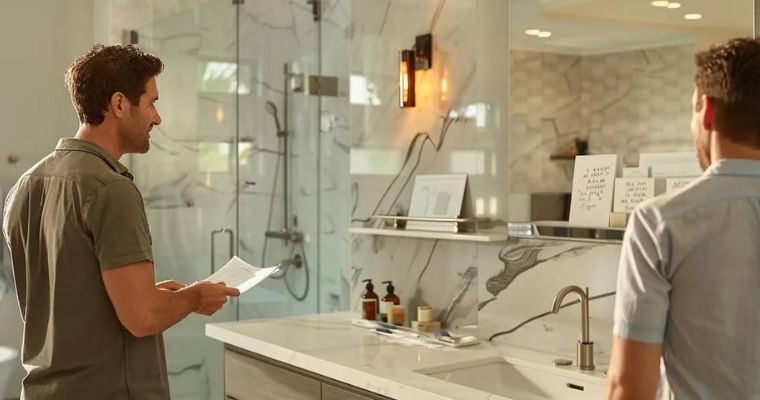
What Questions Should You Ask Potential Contractors?
Essential questions include: - “What is your experience with projects similar to mine?” - “Can you provide references from previous clients?” - “How do you manage scheduling and resolve delays?” - “What exactly is included in your renovation quote?” - “How do you ensure compliance with permits and local codes?” Such inquiries help assess the contractor’s transparency and skill.
How Does Sydney Bathrooms & Design Stand Out Among Competitors?
Firms like Sydney Bathrooms & Design offer integrated services that combine custom design, premium materials, and meticulous project oversight. Their extensive portfolios and proactive client communication distinguish them from competitors while ensuring reliable, high-quality outcomes.
Where Can You See Examples of Completed Bathroom Renovations?
Review contractor portfolios online, attend showrooms, or view virtual tours. Real-life examples and testimonials offer insight into the design quality and workmanship you can expect.
What Are the Latest Trends in Bathroom Renovations in Sydney?
Staying current with trends helps ensure that your renovation is both modern and a sound investment. Trends focus on smart technology, sustainability, and high-end aesthetics.
How Are Smart Bathrooms Changing Renovation Designs?
Smart technology is increasingly incorporated into renovations. Features such as smart showers, sensor faucets, and automated ventilation systems streamline daily routines, enhance efficiency, and reduce utility costs while adding a modern touch.
What Bathroom Styles Are Most Popular in Sydney?
Minimalist and contemporary designs dominate, highlighted by: - Floating vanities - Frameless glass - Large-format tiles - Industrial accents and spa-like touches. These elements create a clean, open, and inviting atmosphere.
How Is Sustainability Influencing Bathroom Renovations?
Eco-friendly practices are crucial. Sustainable materials, energy-efficient fixtures, and water-saving installations are now standard in many projects, offering both environmental and long-term financial benefits.
Final Thoughts
A successful bathroom renovation in Sydney depends on understanding available services, cost factors, effective project management, and adherence to local regulations. By choosing quality materials, embracing modern design trends like smart technology and sustainability, and selecting a reputable contractor, you can transform your bathroom into a stylish, functional sanctuary that reflects your taste and meets all safety and regulatory standards.
Answers to Your Common Questions
YOU MIGHT ALSO BE INTERESTED IN
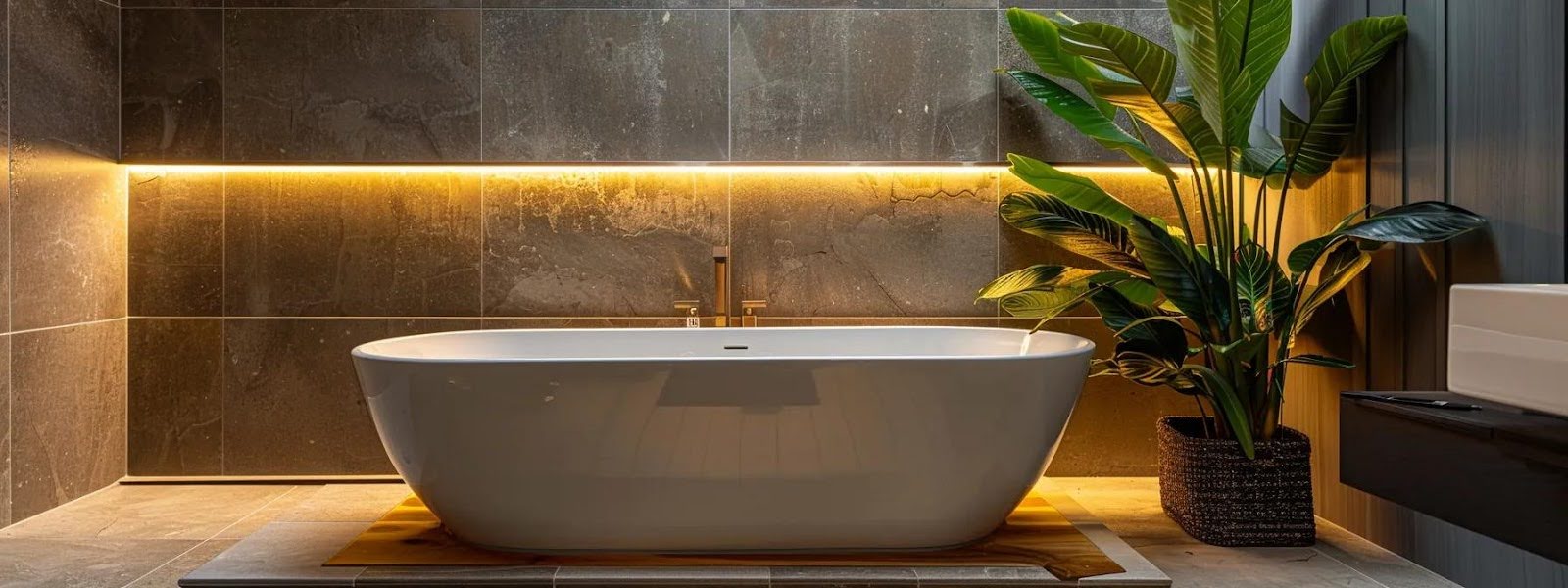
Bathroom Renovations Sydney: Complete Guide to Costs, Designs, and Process

Best Ideas for Affordable Bathroom Renovations in Melbourne

Ensuite Renovation Brisbane: Complete Guide to Design, Cost, and Process
Capital Cities
- Bathroom Renovators Services in Melbourne
- Bathroom Renovators Services in Brisbane
- Bathroom Renovators Services in Sydney
- Bathroom Renovators Services in Adelaide
- Bathroom Renovators Services in Perth
- Bathroom Renovators Services in Canberra
- Bathroom Renovators Services in Hobart
- Bathroom Renovators Services in Darwin










